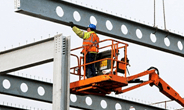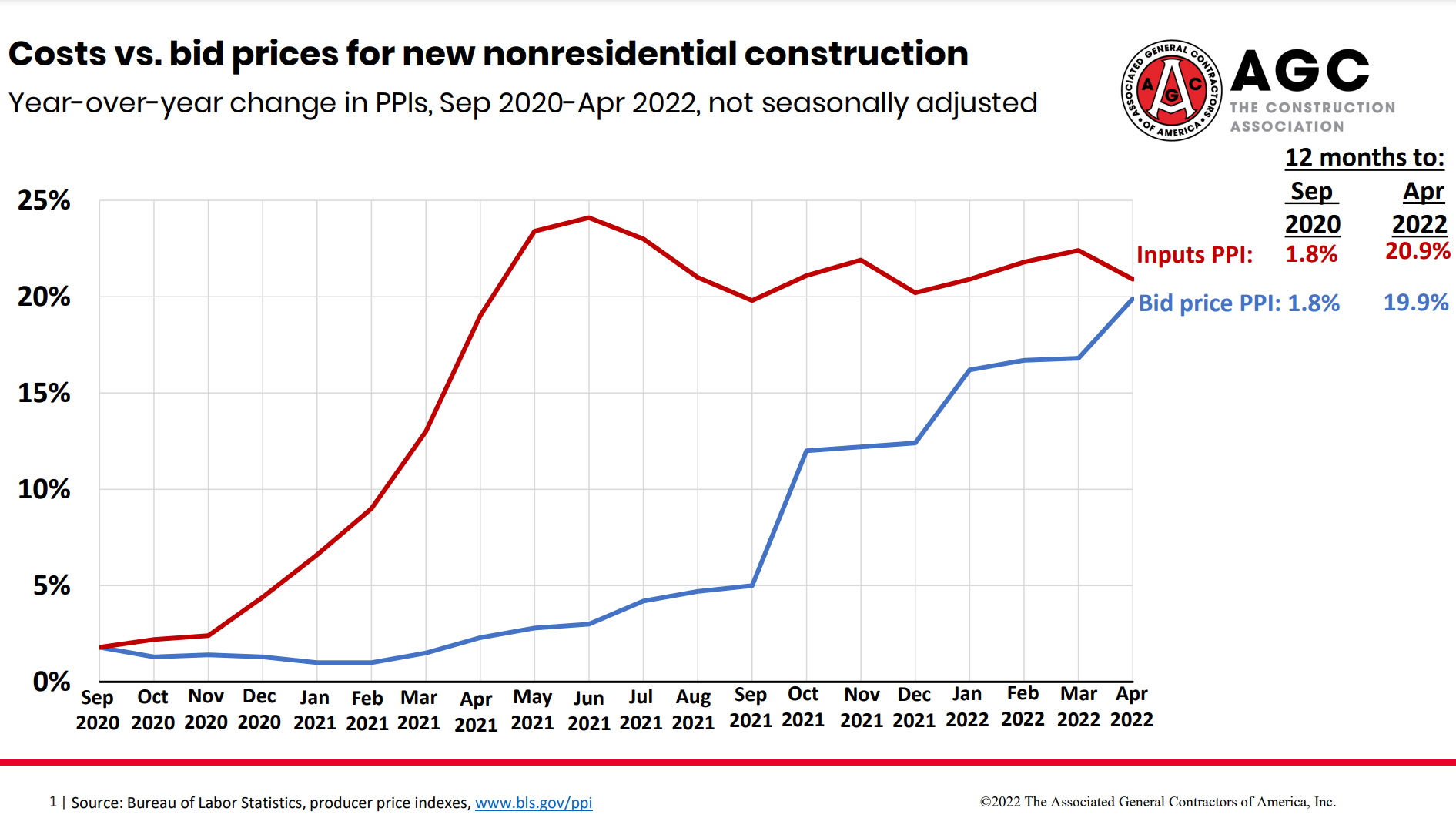Analysis

May 13, 2022
AGC: Nonresidential Construction Costs Jump 21% YoY in April
Written by David Schollaert
The prices contractors pay for construction materials and services – chiefly for new nonresidential construction – jumped by more than 21% in April versus the same year-ago period, reports the Associated General Contractors of America (AGC) in its latest analysis of government data.
The association has called for relief to hard-hit employers from tariffs, especially on key construction materials. AGC also urged the Biden administration to reconsider its recently proposed Buy America regulations, saying the move will make it harder for firms to find and pay for key construction materials.
“Nonresidential contractors have endured twelve months of 20-percent increases in the cost of items they need to build projects,” said Ken Simonson, AGC’s chief economist. “While they have been able to pass some of those increased costs on to clients, most of those increases have come out of their own bottom line.”
Citing the Bureau of Labor Statistics, AGC said the cost index outgrew the bid-price index in April, a disparity that has plagued contractors for the 19th-straight month, year-on-year.
The producer price index for inputs to new nonresidential construction – the prices charged by goods producers and service providers such as distributors and transportation firms – rose 0.8% in April and 20.9% year-over-year (YoY). An index for new nonresidential building construction – a measure of what contractors say they would charge to erect five types of nonresidential buildings – rose 4.1% in April and 19.9% YoY.

Prices rose faster than the 21% increase in bid prices for a wide range of inputs in the cost index. The price index for diesel fuel leaped 85.5% over 12 months, while the index for aluminum mill shapes jumped 44.8%. The index for steel mill products climbed 25.1%, and the index for plastic construction products rose 29.9% over 12 months.
In addition, YoY increases exceeded 19% for several other indexes, including trucking freight (+27.4%), asphalt and tar roofing and siding products (+20.8%), gypsum products (+20.8%), architectural coatings (+32.1%), and insulation materials (+19.6%).
The best way to limit prohibitive costs is to allow contractors to buy materials from the widest possible range of suppliers and to eliminate measures that artificially inflate the cost of products, the AGC said. They urged the Biden administration to end restrictive tariffs and to reconsider its misguided Buy America regulations that will make it much harder for firms to find and afford materials.
“Inflexible tariffs and overly restrictive regulations are making it harder for contractors to find and pay for key materials,” said Stephen Sandherr, AGC’s CEO. “Needlessly inflating the cost of construction and leaving employers with less money available to hire new staff is a bad way to rebuild infrastructure or boost the economy.”
By David Schollaert, David@SteelMarketUpdate.com






